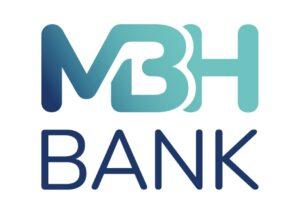In alliance with agriculture: MBH Bank responds to the challenges of the market together with professional organizations
MBH Bank has signed a cooperation agreement with the Association of Hungarian Livestock Breeders, the National Association of Grain Growers, the Milk Trade Organization and Product Council, and the FruitVeb Vegetable and Fruit Trade Organization and Product Council. The main goal of the partnership is for one of the largest banking partners of Hungarian agriculture, together with four organizations representing sectors that account for almost 80 percent of agricultural output, to promote the increase of competitiveness and added value in the sector, thus the rise of Hungarian food products on the domestic and international markets.

The agreements were signed on May 2, XXXI. Signed by Alföldi Allatnéysztó and Mezőgazda Naozon, Levente Szabó, MBH Bank’s Deputy General Manager responsible for individual services, Dávid Hollósi, Managing Director of the credit institution’s Agricultural and Food Business Branch, and Tibor Zászlós, President of the Association of Hungarian Livestock Breeders, Tamás Petőházi, National Association of Grain Growers The president of its association, Zoltán Harcz, managing director of the Dairy Association and Product Council, and Dr. Ferenc Apáti, president of the FruitVeb Association of Vegetables and Fruits, called it crucial to increase the efficiency of domestic food production and processing in the coming years.
The share of the Hungarian food industry is 2 percent of the agricultural output of the European Union, 1.2 percent of the food industry of the community
The sector in a broader sense has a market share of 1.8 percent of EU exports, but at the same time, for example, Hungary’s share of grain exports within the EU is one of the highest, at 9-10 percent. This reflects that a significant part of the produced goods – in the case of corn, up to 35-40 percent – leaves the country unprocessed, with lower added value and profit. The profitability of the sector reaches 90 percent of the European Union level, while the efficiency of the workforce is 45 percent of the EU average. In the food industry, the rate of added value is around 20 percent. “Therefore, it is crucial that in the coming years we are able to meaningfully promote the successful management of our customers, increase competitiveness and added value in agriculture. Interprofessional organizations are our priority partners in this. Within the framework of the Rural Development Program, which is starting now, about HUF 1,500 billion will be allocated to the development of agriculture and the food industry. Perhaps there has never been such a need for these resources and the associated bank financing, since in order for the sector to be able to cope with the challenges, developments and investments are needed,” said MBH Bank’s deputy general manager for individual services. Levente Szabó emphasized that it is a common interest for the domestic producer circle to be strong. “The food industry is a strategic sector that needs modern banking products and services.”
Through the collaborations, the parties also want to find more effective answers to the issues defining the Hungarian food industry today, such as climate change, sustainable farming and the green transition, labor shortages, low integration or import exposure.
“These interprofessional organizations represent the backbone of the Hungarian food industry. The domestic demand for their products is stable, and there is room for them in terms of exports as well. Developments can be based on these, and a branded product can appear on the market. Together, we can do a lot so that the sector can get out of the middle-income trap by focusing on quality-based competition instead of cost-based competition, and become planable, safe and increasingly reasonable. This also means more secure foundations from the point of view of bank financing,” emphasized Dávid Hollósi, managing director of MBH Bank’s Agricultural and Food Business. As he said, MBH Bank strives to finance the entire product path, from producers to processors to traders, because this gives the sector and the bank the greatest stability. Within the framework of the collaborations, MBH Bank also supports the development of the sector with agricultural market research, studies and professional materials, and also helps farmers navigate the often suddenly changing market environment with forecasts. In addition, the credit institution offers farmers a complex banking offer related to the Strategic Plan of the Common Agricultural Policy, which includes the pre-financing of subsidies, the possibility of drawing down advances and investment lending.
Related news
Ministry of Agriculture: the government is supporting the development of crop dryers with significant resources
🎧 Hallgasd a cikket: Lejátszás Szünet Folytatás Leállítás Nyelv: Auto…
Read more >The guarantee of support for farmers is the preservation of an independent, autonomous agricultural policy
🎧 Hallgasd a cikket: Lejátszás Szünet Folytatás Leállítás Nyelv: Auto…
Read more >








